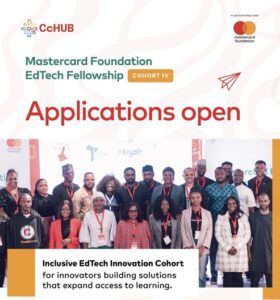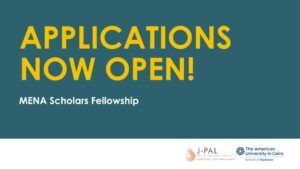The Global Education Analytics Institute (GEAI), in collaboration with PEP, invites young African researchers who are motivated to work on educational improvement and could benefit from additional support to submit an expression of interest in the Africa Fellows in Education Program. The program enables the fellows to participate in a two-year research and policy development fellowship that introduces them to relevant research and analytical experiences and to international networks of researchers and policy advisers.
The Global Education Analytics Institute (GEAI) and The Africa Fellows in Education Program (AFE) is supported by the Yidan Prize.
The proposed program is organized around a combination of in-country activities and network/training opportunities abroad. Under the two out-of-country segments, it is expected that the successful fellows will have the opportunity to attend two of the most prominent international conferences on the economics of education – the CESifo Economics of Education conference and the Association for Education Finance and Policy (AEFP) conference. (The exact conference and travel schedule is subject to change based on the prevailing circumstances.) In addition to these conferences, the fellows will participate in a series of short courses designed to be most suitable to their needs, covering topics such as evaluation methods, communications, incentive structures, and other related areas, while also providing fellows with the opportunity to foster international connections. Further, they will have a series of lectures around testing and performance measurement. This introduction will enable fellows to understand the use of large-scale testing data from various international and regional assessments and will also sensitize them to general issues around the use of standardized testing. The first two weeks of training will be in September 2023 and the other two-week training session will be held in March 2024.
While in their home countries, the fellows will develop a research/evaluation project to be carried out (mainly) in the second year under program supervision and with local scientific mentors. The initiative will engage a part-time local facilitator to monitor the progress of each fellow and to reinforce new skills. This approach will lead to fellows exploring the existing state of local assessments and evaluations of educational issues. Both during the fellowship period and afterward, a team of advisors from Stanford University and other organizations in Africa and internationally will provide direct support and supervision.
Fellows are expected to complete the project in two years, organize in-country policy outreach workshops to disseminate the research findings, and present the final report at the GEAI-PEP-organized conference in June 2025.
Eligibility criteria
To be eligible for this call, applicants must:
- Be a national of a Sub-Saharan African country;
- Have an MA or Ph.D. degree, preferably in Economics, education policy, social/public policy, development studies or international development, with a strong focus on education. While a Ph.D. is not mandatory, GEAI encourages fresh Ph.D. graduates who can benefit from mentorship and additional training to become solid researchers;
- Be proficient in quantitative data analysis, with a strong knowledge of data analysis software such as R and Stata;
- Have an affiliation at a research or higher education institution in a Sub-Saharan African country, and intend to do so for the foreseeable future;
- Not be older than 35 years old;
- Demonstrate interest in education policy research and analysis;
- Qualified females are strongly encouraged to apply.
Method of Application
The Africa Fellows application process is managed by GEAI, in collaboration with PEP. The applications will be assessed based on a number of factors, including prior preparation and quality of essay (see below). The expression of interest by the applicants should include:
- A two-page statement of interest;
- A two-page essay. In this essay, the applicant must think and write about a specific education problem in their home country and how such a problem could be scientifically evaluated using quantitative methods. The essay must be prepared in English;
- A detailed and updated CV with at least two (2) referees whom the selection committee can contact.
Applications must be submitted via the PEP intranet system (see detailed procedure below), before the 21st of May 2023 (23:59 GMT).
For More Information:
Visit the Official Webpage
Application Deadline: May 21, 2023

